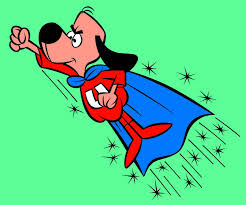It’s hard to do sometimes, to go against the grain, to not root for the feel good story competitor, the one who is clearly an underdog. After all, everybody loves an underdog.
There have been many great sports movies that featured an underdog, and while the underdog may not always win, the audience is unanimous in its support of the underdog.
Weren’t we all rooting for the Italian Stallion to beat Apollo Creed in Rocky?
Didn’t we love it when the high school basketball team from the small town of Hickory, Indiana beat the bigger and more athletic team from South Bend in Hoosiers?
And who can forget the movie Bad News Bears, a quintessential underdog movie where an inexperienced, dysfunctional Little League team of misfits beats the overwhelming favorite?
But it’s not just at the movies where we see the underdog phenomenon at play. How many of us start cheering for the number 15 seed going against the number 2 seed during March Madness if the game is coming down to the final few seconds?
How excited would you have been if the Jamaican Bobsleigh team actually won a medal at the Winer Olympics?
My guess is that most people tend to root for the underdog, unless they have some type of connection to the favorite – it’s their hometown team, it’s the college they graduated from, they have a friend or relative competing, or perhaps they’ve got money on the game.
So why is this?
Daniel Engber wrote a great article a few years ago in Slate magazine titled, “The Underdog Effect – Why Do We Love a Loser?”. Engber offered many reasons for why people root for the underdog, often backing up the reasons with the results from lab studies. One suggestion is that sports fans just like to maximize the excitement they get from watching a game, and so a close game would bring them more happiness, and so many fans tend to cheer for whatever team is losing at that moment in time. Another theory has it that the underdog tries harder, and people like to reward effort. Or another study looked at people’s desire for a level playing field, and when it does not appear to be one, we root for the underdog.
But to me the most compelling argument in the Engber article is that most of us can relate to the underdog. “The long shot offers something precious—the belief that anyone can overcome his misfortune. …The average American roots for the underdog in sports because he’s an underdog in life.”
But more and more often I find myself not rooting for the underdog, but rather for the dominant team or individual. To me, such a team or individual personifies excellence, and potentially offers us the once-in-a-lifetime opportunity to see someone who was the best at whatever he or she did.
I was rooting for Michael Phelps all the way in his quest for 8 gold medals at the 2008 Olympics. He had a chance to establish himself as the greatest swimmer and Olympian of all time, and I didn’t want to see an unknown come out of nowhere and beat Phelps by a tenth of a second. As a result of his success, I get to say that I saw the greatest.
It’s one of the reasons I’ve always rooted for Tiger Woods. He was the best golfer of his generation, and I felt fortunate to watch such greatness in action. To me, it would not be as much fun if 50 different people won a tournament each week.
If I didn’t have a vested interest in rooting for Villanova’s basketball team, I would love to see Kentucky go undefeated this year and win the national championship. Such seasons are rare, and I think it is worth celebrating, and rooting for, such excellence when it happens.
A perfect season has only happened once in the Super Bowl era; the 1972 Miami Dolphins are the only football team to have an undefeated season and win the Super Bowl. That’s why I was pulling for the New England Patriots in 2007; unfortunately New England was defeated in the Super Bowl for its only loss of the season.
And it’s not just sports that make me feel this way. As many of you may know, I was a huge fan of Steve Jobs, and a big reason why was because he was the best at what he did, and as a result, he changed entire industries. While he may have started out as an underdog, he certainly did not stay that way for long.
I think many of us strive for personal excellence, to be the best at what we do. We also encourage it in others, whether as a parent, a teacher, a boss, or a friend. So why shouldn’t we feel the same when it comes to the world of competition, whether it’s sports or business?
I think when all is said and done, what we tend to remember are the great ones, because they made a difference, and I think it’s time more of us started rooting for them.


Henman and Henman Hill at Wimbledon springs to my mind after reading this post …The nearly man of Wimbledon…Even with the British public behind him (not) me I will add…Nice guy but nice doesn’t win…That winning streak is inborn and you can’t teach that…
LikeLike
I can’t remember that name, but I just read a bit about him. Seems like he had a great career, just never winning a Grand Slam title.
LikeLike
Yes he did just some of the titles eluded him 🙂
LikeLike